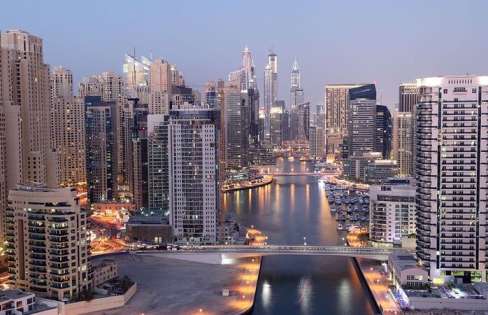In Q1 2023, Abu Dhabi’s real estate market witnessed a surge in transactions, with a value of AED 27.9 billion, representing a 147% increase.
Abu Dhabi’s real estate sector is continuing to show growth and resilience, with property sales and mortgages worth Dh27.9 billion recorded in the first quarter of 2023, marking a 147 per cent increase from the year-ago period, according to the Department of Municipalities and Transport. The department reported 5,472 transactions, compared to 3,304 in Q1-2022.
Dr. Adeeb Afifi, the Executive Director of Real Estate Sector at DMT, said the rise in transactions and overall value reflects the confidence of investors in Abu Dhabi’s real estate market, and demonstrated the sector’s resilience amid global economic uncertainties.
The property sector recorded 3,518 buying and selling transactions worth Dh16.2 billion, indicating a 268 per cent increase in the total value of property sales and 104 per cent increase in the number of transactions compared to Q1-2022, when there were 1,722 transactions worth Dh4.4 billion.
DMT also recorded a significant increase in the value and number of mortgage transactions during the period, with 1,954 mortgages recorded worth Dh11.7 billion, compared to 1,582 transactions worth Dh6.9 billion in the year-ago period.
The rise in the property sector can be attributed to various factors such as government initiatives to diversify the economy, increased foreign investment, and a growing demand for housing in Abu Dhabi. The UAE government has been implementing various policies to encourage foreign investment, including granting long-term visas to investors and professionals in the real estate sector.
Moreover, the recent move by the Abu Dhabi government to allow foreigners to own freehold properties in designated investment zones is expected to further boost the real estate sector in the emirate. This move is expected to attract more foreign investors and increase demand for properties in these designated areas.
Another factor contributing to the growth in the real estate sector is the strong demand for housing, especially in the affordable segment. The government has been focusing on providing affordable housing for its citizens and expatriate residents, which has led to increased construction activity in the sector.
The increase in property transactions is not limited to Abu Dhabi, as other emirates in the UAE have also witnessed a surge in the sector. Dubai, for instance, recorded a 62.6 per cent increase in property transactions in the first quarter of 2023, with a total value of Dh72.5 billion.
Overall, the real estate sector in the UAE is expected to continue its growth trajectory in the coming years, fueled by government initiatives, increased foreign investment, and a growing demand for housing. With the UAE’s economy diversifying and expanding rapidly, the real estate sector is poised to play a crucial role in the country’s overall development.





